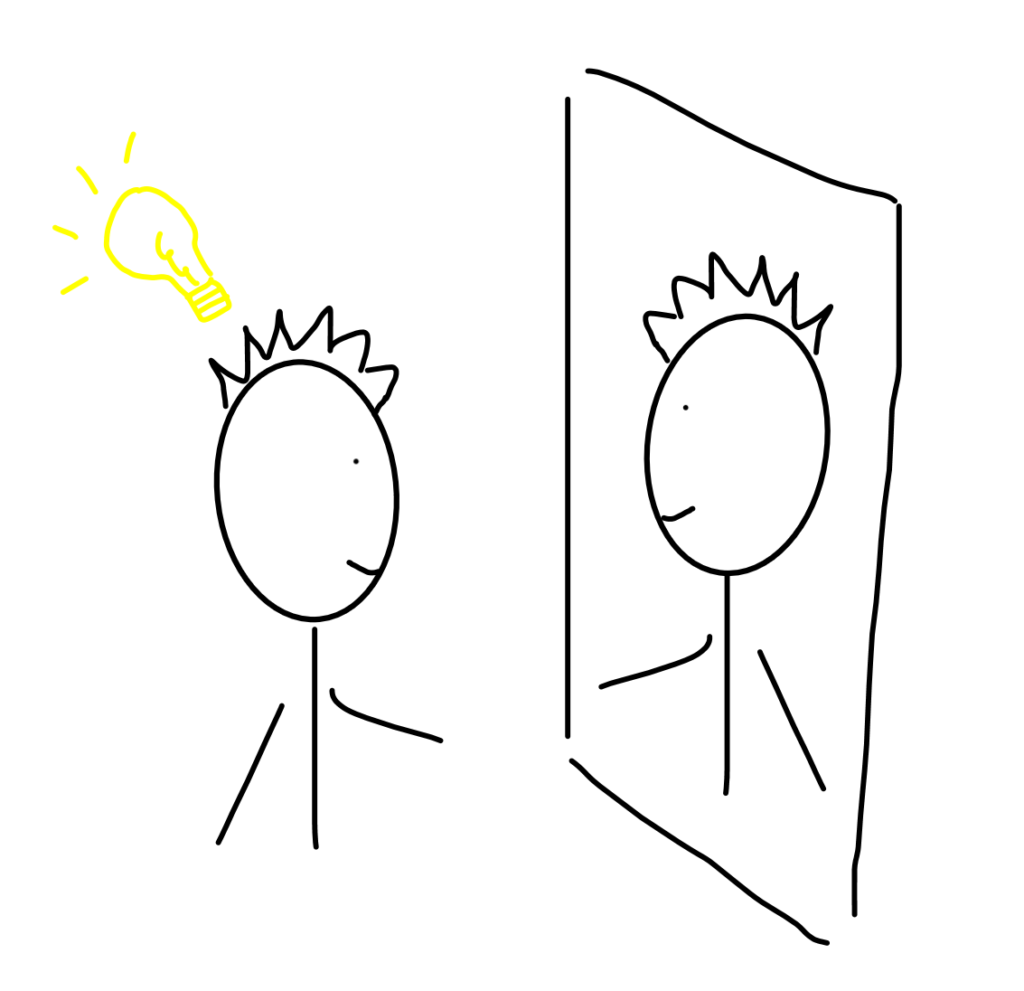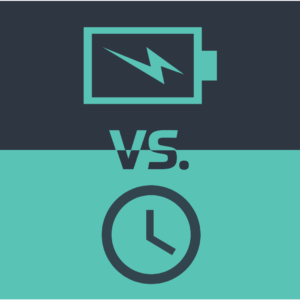In the blog article “How Do You Become Stronger Than Ever?” we reflected on the importance of personal leadership in determining success in the area of health. But how does personal leadership work in practice? How do you recognize certain behaviors in yourself (awareness) and how can you change them (action)? To recognize behaviors in yourself, it helps to know a bit more about behavior patterns. For this, we use elements from social psychology. This is not rocket science. These are forms of behavior that you will likely recognize well, in yourself and in others.
Awareness
You and I live with an invisible handicap. A bearable but serious mental limitation that we ironically call ‘common sense.’ We often think we have good reasons for our opinions, while in reality, we form opinions first and then come up with reasons afterward. This happens almost automatically and usually only yields short-term benefits. It prevents you from achieving your goal. You could call it self-sabotage. These cognitive errors come in various forms. These forms are explained here so you can start recognizing them in yourself. View these cognitive errors with interest, not judgment. Observe them and work on them. Awareness of these cognitive errors is the tool that helps you take a step forward in creating a feasible health plan.
Recognizing Cognitive Errors in Yourself? Easy!
A large part of our decisions is based on previous experiences. We assess a new situation based on something we’ve encountered before. This is sensible because it usually works well and quickly. However, it sometimes goes wrong. And that’s where cognitive errors and blind spots come in. You might recognize some of them in yourself or in someone close to you. The goal is to be honest with yourself when working on your health plan. Self-knowledge in such a process is essential to bring it to a successful conclusion. Don’t fool yourself and view yourself “from above” without judgment. The cognitive errors we are talking about are called biases and errors in psychology.
The 5 Most Common Cognitive Errors
Confirmation bias
People often look for arguments that confirm a particular viewpoint. Arguments that prove the opposite are overlooked or, more accurately, unconsciously ignored. The result is a conclusion that doesn’t tell the whole story. A common variant when it comes to health is that there are so many different opinions about nutrition that it seems pointless to try to make healthy choices. “You can never do it right,” they say. Nothing could be further from the truth. For example, plant-based eating has a very positive effect on weight, mood, and energy.
Self-serving bias
Ever failed an exam because the teacher disliked you? Or failed to lose weight because external factors got in the way? People generally like to maintain a positive self-image. For this reason, success and positive results are often attributed to their own qualities. Negative results are preferably attributed to external factors. This keeps the self-image intact. Unfortunately, this prevents the person from thoroughly evaluating and possibly adjusting their behavior. An adjustment that ensures you achieve your goal in the future. So keep holding a mirror up to yourself, even if it feels uncomfortable in the short term. Personal growth goes hand in hand with overcoming the fear of the unknown.
Optimism / pessimism bias
We tend to overestimate positive outcomes when we are in a good mood. Negative outcomes are more often expected when we are in a bad mood. Have you ever started a health goal full of enthusiasm? You had just watched an inspiring program on TV where someone lost a lot of weight. Without creating a clear, multidimensional plan for yourself, you started in the hope of good results. Because you were in a good mood, you failed to view your situation from multiple perspectives and didn’t get the desired effect. Conversely, this also applies. Don’t get discouraged by a setback. Look at it realistically and find a way to turn it around.
Negativity bias
We love success just as much as we hate failure. And when we make a decision, we think in terms of outcomes; gain or loss. The bias comes into play when we unfairly weigh a potential negative outcome more heavily than a potential positive outcome. This can result in “not wanting to take action” out of fear of a possible negative result. And yet we want to achieve that health goal. This is why many people don’t attempt to live healthier lives. The fear of a negative self-evaluation is greater than the cheerful prospect of success. Don’t let yourself be fooled by yourself!
Decline bias
Don’t like changes? You are not alone, and there is a reason for it. We humans like to understand the world so we don’t face unforeseen situations. When the world changes, it requires an adjustment of our thoughts. And because adjusting thoughts can lead to internal discomfort, we prefer not to do it. There is a lot of evidence that people who are used to change lead more successful and happier lives. So take on the challenge and be out of balance for a while. You won’t achieve success without effort.
Getting Started with Personal Leadership!
You don’t have to map out how personal leadership can help you achieve your health goal alone. We do this in a light-hearted, down-to-earth way.





